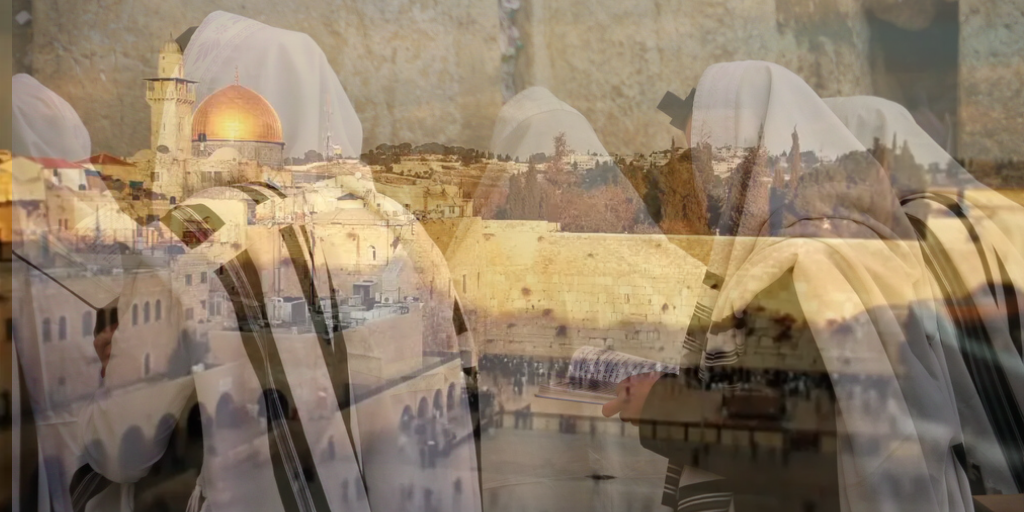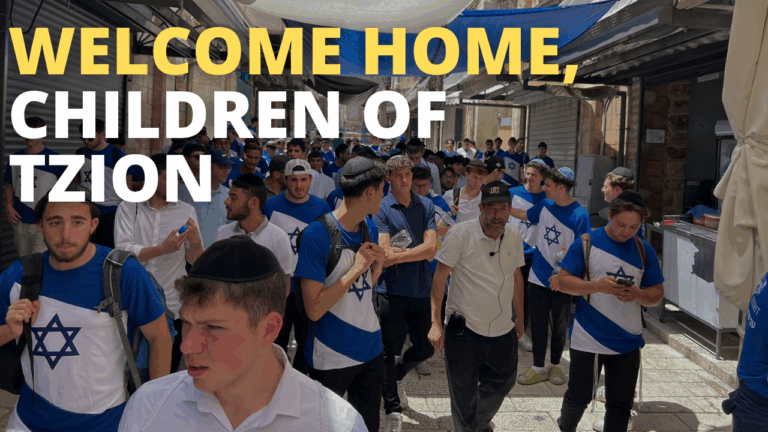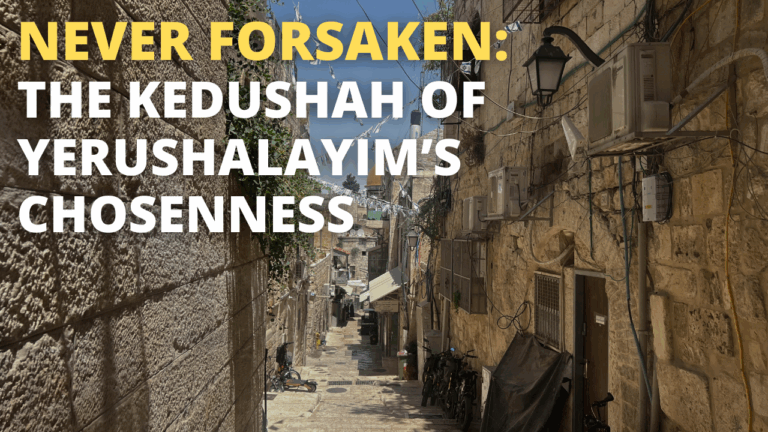Jerusalem: City of Tzedek and Shalom
The laws of the Sotah are a vehicle to achieve “tzedek” (justice) and “shalom” (peace). It is the absence of these elements in a marriage that triggers the Sotah process, meaning to say a situation in which no one knows if a wife committed adultery, such that she cannot be pronounced as innocent or guilty – an inherent lack of tzedek. Simultaneously, the husband suspects the wife of betrayal and therefore there is no shalom in their marriage.
The process of Sotah addresses both of these problems. First, the waters in the Beit HaMikdash will publicly determine if she is innocent or guilty and therefore justice will certainly be rendered. Similarly, the Gemara notes that part of the laws of Sotah is to erase the name of God in the waters that the suspected wife will drink, what is usually a biblically forbidden act. God declares that reinstating peace between a husband and a wife takes precedence over even honoring His name.
The shortcode is missing a valid Donation Form ID attribute.
In short, from the laws of Sotah we see the importance of tzedek and shalom and particularly the synthesis of the two. Tzedek without Shalom creates a situation where everything is fair, just and by the books but there is a lack of warmth. Shalom without tzedek is a recipe for disaster since without equity the peace will quickly dissipate. It is only when both tzedek and shalom are present that order and warmth are restored that this family can once again become a home for the Divine Presence.
We also find this integration of tzedek and shalom regarding Yerushalayim. Rabbi Dr. Norman Lamm zt”l, in a sermon marking the first Yom Yerushalayim, notes that both of these elements are deeply rooted in the city’s history and character. The city is introduced in Tanach as “Shalem” (the same spelling as “shalom”) who’s king is Malki-tzedek – the king of justice.
Similarly, in the times of Yehoshua the king of Yerushalayim is Adoni-tzedek and Mashia’ch, the future king of Yerushalayim, is often described as “Mashia’ch Tzidkeinu.”
Dr. Lamm explained that these are not merely insignificant descriptions of the city. Rather, the essence of Yerushalayim is that it is a place of Divine Revelation. However, we see throughout Tanach and halacha that God does not just rest anywhere, rather He only appears when there is a worthy setting. Therefore, in order for Yerushalayim to be the home of the Shechina it must have these divine traits of tzedek and shalom deeply embedded into the identity of the city and its inhabitants.
May we merit tzedek and shalom throughout the world, and especially in Yerushalayim!



